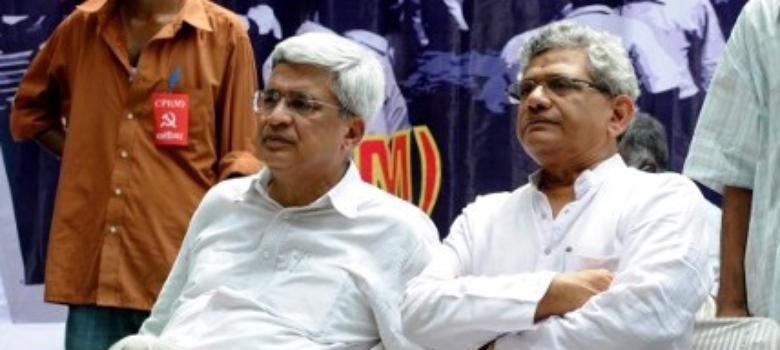Karat and Yechury have been in a power struggle for almost a decade, ever since Karat’s appointment in 2005. Speaking on condition of anonymity, a senior CPI(M) leader told Scroll.in that their primacy in the party has been balanced. While Yechury has influential friends in the corporate world and ties with fraternal parties in other countries and is a skilful orator, Karat commands stronger support among party workers in states such as Kerala, Andhra Pradesh and Tamil Nadu.
Alternative draft
The tension between the two became evident during a Politburo meeting on the weekend, when Yechury opposed a proposal by Karat and the Politburo to revise the tactical line the party had adopted in 1978, in the wake of the Emergency of 1975. At the time, the CPI(M) had decided to form an alliance of Left and other democratic parties. Karat had prepared a draft to review that resolution, arguing that the party should concentrate on renewing itself rather than building alliances.
Instead, Yechury tabled an alternative five-page document that not only repudiated the conclusions made in the general secretary’s draft report but also blamed Karat for the humiliating defeat that the party faced in the 2012 assembly elections in West Bengal and in the 2014 Lok Sabha elections.
“Yechury claimed that the problem was not with the tactical line but with Karat and his leadership,” according to a member of the Politburo. “Yechury’s document says that the party has particularly suffered in the last decade due to the ineffective administration and strategic errors made by Karat.”
Previous incidents
This is not the first time that the two have clashed. According to the same official, the cold war between them has intensified since the passing of former West Bengal Chief Minister Jyoti Basu in 2010.
Many obituaries of Basu that appeared in the press at the time attacked Karat for incompetence and accused him of failing to follow the leader’s visionary approach. There was speculation that these obituaries were orchestrated by Yechury and his supporters.
Two years earlier, following the party’s decision to withdraw support to the Congress-led United Progressive Alliance because of its decision to proceed with the Indo-US nuclear deal, Yechury openly criticised Karat for backing the government in the first place. In 2009, he blamed Karat for wrongfully expelling Somnath Chatterjee following the senior leader’s decision to ignore party instructions and continue in his post as Lok Sabha speaker ‒ a move that allowed the UPA government to survive a trust vote.
The battle for the chair
Party insiders said that while Yechury wishes to finally claim the throne at the end of Karat’s term, Karat hopes to install one of his confidants as his successor: Politburo member S. Ramachandran Pillai, a senior CPI(M) leader from Kerala.
Meanwhile, the party is losing members of the senior cadre and from its youth wing, Students’ Federation of India, to the rival Bharatiya Janata Party. According to a central committee member, CPI(M) has lost about 2,500 cadres to the right-wing party in West Bengal, Assam and Tripura since the formation of the Narendra Modi government.
“The senior leadership refuses to budge from their position of power and it is not willing to show solidarity in the party either,” this official said. “A lot of workers at the branch committee, area committee and local committee levels have already left. If they do not rethink their strategy and make amends, the party cannot hope for a comeback.”










